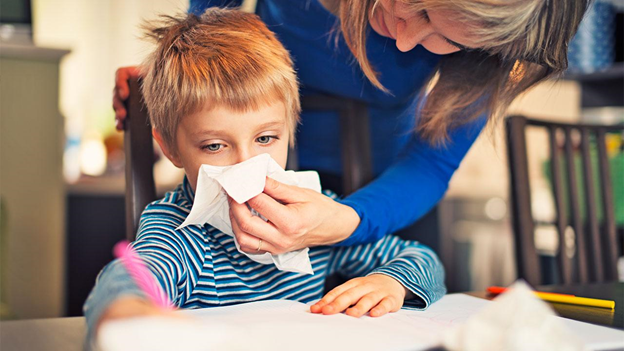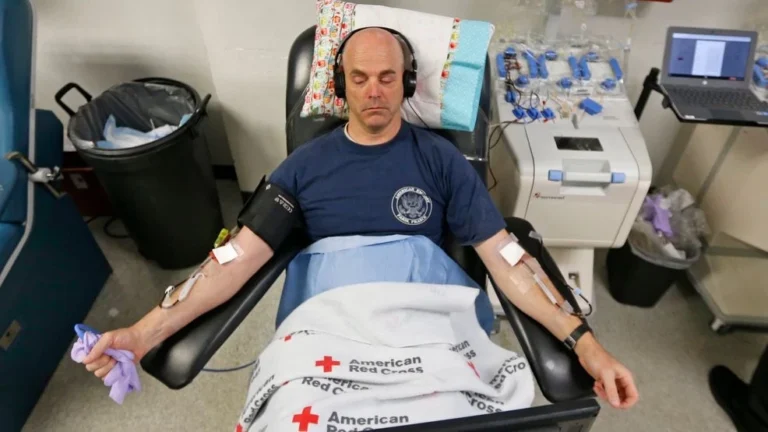
Navigating the myriad options of cough and cold medications for your child can be a perplexing endeavor. Amid the plethora of products on the market, each with its own set of intricate ingredients and age-related usage guidelines, it’s imperative to tread cautiously and base your decisions on well-informed choices. The complexity of this terrain becomes apparent even to those, like pharmacists, who are well-versed in pharmaceuticals. The crux of the matter lies in differentiating age-appropriate remedies and understanding the potential risks and benefits associated with each age group. By adhering to the American Academy of Pediatrics’ recommendations, parents can ensure the safety and well-being of their children while effectively managing the discomfort of coughs and colds.
For Children Under 4 Years Old
The guidance provided by the American Academy of Pediatrics offers a resolute stance against the use of cough and cold medications for children under four years of age, and advises cautious usage until they reach six years. This recommendation is underpinned by a substantial body of evidence demonstrating the ineffectiveness of cough suppressants and decongestants in this age group, coupled with the substantial risks they pose. A harrowing statistic from 2005 serves as a compelling illustration of the potential hazards: 1,519 reported cases of children under two years old were treated in emergency rooms across the United States due to adverse effects and overdoses stemming from cough and cold medications, with tragically fatal outcomes in some instances. This stark reality underscores the critical importance of adhering to these guidelines and prioritizing the safety and well-being of young children when dealing with coughs and colds.
For Children Between 4 and 6 Years Old
For children within the age range of four to six years, a prudent approach is to either strictly adhere to the guidelines set forth for children under four years old or, if deemed absolutely necessary, consider the use of cough and cold medications under the close supervision of a qualified healthcare professional. This age group represents a critical transitional phase in a child’s development, with physiological responses to medications and health conditions varying considerably from one individual to another. Hence, a cautious and individualized approach is paramount to safeguard their well-being and mitigate any potential risks associated with these medications. Consulting a physician in such cases not only ensures that the child’s specific needs are met but also helps to avoid any unintended consequences, thereby striking a balance between providing relief and maintaining their safety.
For Children Over 6 Years Old
Once a child reaches the age of six and beyond, the approach to using cough and cold medications can become more permissive, though not without vigilance. Parents and caregivers can exercise caution and consider these medications, while adhering to the dosing instructions provided on the product’s packaging. Opting for products with the fewest active ingredients is a prudent strategy, as it enables a more targeted approach to address the specific symptoms that the child is experiencing. By doing so, you can tailor the treatment to match the child’s precise needs, avoiding the administration of extraneous medications that may not be necessary. This measured approach is not only effective in managing coughs and colds but also minimizes the potential for side effects or interactions between multiple ingredients, thereby enhancing safety and ensuring the child’s well-being during the recovery process.
For All Children of Any Age
Irrespective of your child’s age, certain fundamental healthcare practices can be applied. First and foremost, age and weight-appropriate doses of acetaminophen or ibuprofen can be safely utilized to manage pain and fever, providing much-needed relief during episodes of sickness. In addition, the use of cool mist humidifiers proves invaluable in maintaining optimal airway moisture, a crucial factor for easing congestion and discomfort, all while avoiding the potential risks associated with hot steam, including bacterial growth and burn hazards. Hydration remains an essential cornerstone in the recovery process, making it imperative to ensure that your child stays well-hydrated by offering water, clear broths, and electrolyte solutions. Furthermore, for young children, such as infants and toddlers, the utilization of saline nasal sprays and bulb suctioning can significantly aid in enhancing their comfort and facilitating unobstructed nasal breathing, a welcome relief during bouts of congestion or colds. These simple yet effective measures collectively contribute to the child’s recovery and comfort, promoting their overall well-being during illness.
Over-the-Counter Medicines for Children of Any Age
-
Cough Suppressants: These often contain dextromethorphan (DM). Examples are Robitussin DM and Mucinex DM. They are used to quiet a cough.
- Expectorants: Guaifenesin is a common ingredient used to loosen mucus.
- Nasal Decongestants: For older children, products may contain pseudoephedrine or phenylephrine.
- Antihistamines: For colds with a runny nose, antihistamines such as diphenhydramine may be used, but usually for children over a certain age.
- Pain Relievers/Fever Reducers: Acetaminophen or ibuprofen can be used to reduce fever and relieve pain, with specific children’s formulations available.
It is important to note that these medications can have side effects and may not be suitable for all children, especially those under 4 years of age. Parents and caregivers should always read the labels for age restrictions and dosage instructions and consult with a healthcare provider before administering any medication to a child.
Does Honey Help Suppress Coughing?
Honey indeed stands as a natural and reliable remedy for soothing coughs, thanks to its throat-coating properties and the potential relief provided by its natural sugars. It’s crucial to emphasize that honey should only be introduced when your child is at least one year old, and typically, administering ½ to 1 teaspoonful of honey at home can effectively alleviate cough symptoms. For added convenience, commercially available honey products can also be considered, although a note of caution is warranted to ensure they do not contain additional cough medications that could inadvertently expose your child to multiple substances. In the broader context of combating coughs and colds, it’s evident that prevention remains the most potent defense. Given that more than 200 viruses can trigger the common cold, encouraging children to practice good hand hygiene through frequent handwashing and imparting the knowledge to avoid close contact with individuals afflicted with colds or upper respiratory infections becomes the cornerstone of defense against these common childhood ailments. Prevention strategies, along with the judicious use of age-appropriate remedies, collectively serve as the most effective approach to safeguarding children’s health during the cold and flu season.
Conclusion
In conclusion, the realm of cough and cold medications for children can undeniably appear perplexing, with a myriad of products and intricate age-specific recommendations. However, the key to ensuring your child’s well-being when they’re feeling under the weather lies in adhering to these age-specific guidelines provided by the American Academy of Pediatrics. By prioritizing safety and efficacy, parents and caregivers can make informed decisions that not only alleviate their child’s discomfort but also mitigate potential risks associated with over-the-counter medications. Moreover, the judicious use of natural remedies, such as honey, serves as a gentle and effective approach for managing coughs in children one year and older. Beyond these remedies, it’s vital to remember that prevention through good hand hygiene and minimizing contact with individuals suffering from colds or upper respiratory infections remains a potent defense strategy. This holistic approach collectively safeguards children’s health and comfort during the cough and cold season, promoting a more informed and effective way to navigate these common childhood ailments.







